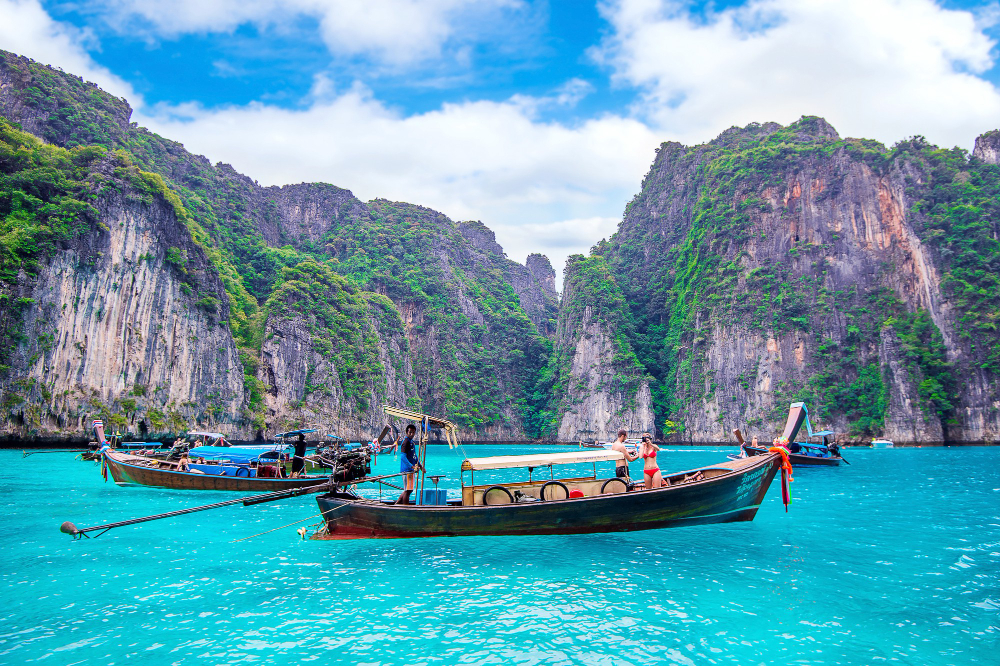
Thailand has earned a global reputation as one of the leading destinations for medical tourism, attracting millions of international patients annually from Asia, the Middle East, Europe, and North America. With its combination of high-quality healthcare services, affordable pricing, and world-renowned hospitality, Thailand stands out as a destination where medical excellence meets holistic care. Its major cities—especially Bangkok, Chiang Mai, and Phuket—host internationally accredited hospitals offering advanced medical technology, luxurious patient suites, and English-speaking staff tailored to the needs of foreign visitors.
Thailand blends traditional wellness philosophies with cutting-edge medical care, offering both state-of-the-art surgical procedures and complementary healing therapies rooted in centuries-old Thai medicine. Government support and private investment have positioned Thailand as a medical hub in Southeast Asia, with infrastructure that caters seamlessly to international patients looking for reliable, discreet, and cost-effective treatments.
Thailand is particularly well-known for cosmetic and plastic surgery, dental treatments, dermatology, and gender-affirming surgeries. Bangkok and Phuket, in particular, are home to specialists performing breast augmentation, facelifts, tummy tucks, and other aesthetic enhancements with globally competitive outcomes. The country is also a regional leader in IVF and fertility treatments, orthopedic surgery, cardiac care, and bariatric procedures.
Minimally invasive surgery, spine treatments, and comprehensive health screenings are also frequently sought by medical tourists. Thailand’s affordability sets it apart—with procedures typically costing 50-70% less than in the U.S., U.K., or Australia. All-inclusive treatment packages often cover hospital stay, medical fees, accommodation, and transfers, ensuring convenience without compromise.
The country's best doctors are often internationally trained, many holding certifications from Europe, the U.S., or Australia. Hospitals that cater to foreign patients also frequently hold accreditations like JCI, and some collaborate with international institutions, enhancing standards of care and medical safety.
Thailand is highly accessible via major international airports such as Bangkok’s Suvarnabhumi Airport and Phuket International Airport, which operate direct flights from most continents. The visa process is relatively simple, with visa-free or visa-on-arrival access for many countries. Medical tourist-specific visa options are also available for extended treatment stays.
Patient support is a strong suit in Thailand. Leading hospitals offer end-to-end concierge services that include airport pickups, hotel arrangements, language interpretation, and personal care coordination. Many facilities have dedicated International Patient Centers that act as one-stop support hubs.
Language barriers are minimal in Thailand’s private healthcare system. Doctors, nurses, and coordinators fluent in English—and other major languages—are standard in facilities that cater to foreign patients. Thailand also accommodates cultural, dietary, and religious sensitivities, offering vegetarian, halal, or kosher meals, gender-specific caregivers, and designated prayer rooms.
In addition, Thailand’s tropical climate, serene beaches, and renowned hospitality offer the perfect environment for healing and recovery. Many patients choose to combine treatment with relaxation at spa resorts or wellness retreats that promote recovery of both body and mind.
Thailand’s healthcare system is supervised by the Ministry of Public Health, which upholds strict standards of licensing, safety, and ethical conduct. Many private hospitals are accredited by Joint Commission International (JCI) and implement advanced protocols for hygiene, digital health records, and patient rights.
Strict infection control policies, surgical safety standards, and 24/7 nursing care ensure that foreign patients are protected. Legal frameworks exist to address malpractice, and patients have the right to full disclosure and medical transparency.
Hospitals also emphasize post-treatment continuity. Many offer aftercare programs, including virtual consultations, rehabilitation sessions, and wellness therapies. For complex or long-recovery procedures, hospitals partner with luxury recovery centers or provide on-site physical therapy and psychological support, ensuring patients receive full-spectrum care even after their procedure is complete.
Thailand combines advanced medical treatment, affordability, and a healing-centered travel experience like few other countries in the world. With its internationally accredited hospitals, skilled specialists, and a deeply ingrained culture of care and hospitality, it offers a world-class experience for medical tourists. Whether seeking life-enhancing surgery, fertility solutions, or aesthetic refinement, Thailand delivers quality, value, and peace of mind for patients from across the globe.
1. Why is Thailand popular for medical tourism?
Thailand offers high-quality care at affordable prices with excellent hospitality.
2. What procedures are most common in Thailand?
Cosmetic surgery, dental care, IVF, orthopedic surgery, and gender-affirming surgeries.
3. Are the hospitals in Thailand internationally accredited?
Yes, many are accredited by the Joint Commission International (JCI).
4. Do doctors in Thailand speak English?
Yes, most private hospital staff, including doctors, speak fluent English.
5. How much can I save on medical procedures?
Patients often save 50–70% compared to costs in the U.S. or Europe.
6. Is it safe to get surgery in Thailand?
Yes, hospitals follow strict safety and hygiene standards regulated by the Ministry of Public Health.
7. Do Thai hospitals offer support for international patients?
Yes, services include airport pickup, interpreters, and concierge-level assistance.
8. Can I combine treatment with a vacation in Thailand?
Absolutely. Many patients recover in spa resorts or near scenic beaches.
9. Do I need a visa for medical travel to Thailand?
Many nationalities get visa-free or visa-on-arrival access. Medical visas are also available.
10. What cities are best for medical tourism in Thailand?
Bangkok, Phuket, and Chiang Mai are top destinations for international patients.
11. What is the currency used in Thailand?
The Thai Baht (THB).
12. What time zone is Thailand in?
Thailand follows GMT+7 (Indochina Time).